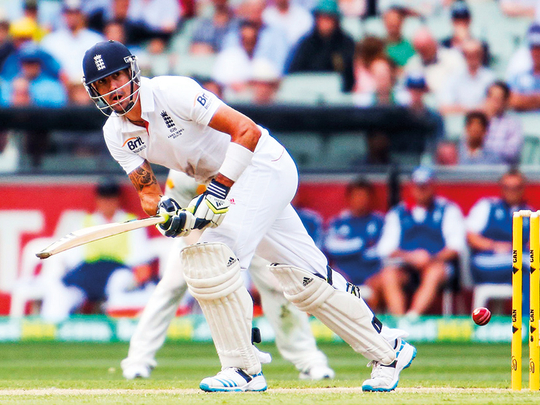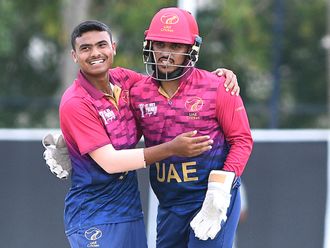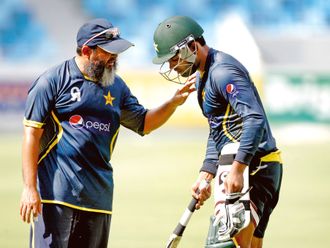
London: Amateur cricket clubs have complained that new Home Office immigration guidance could bar talented young overseas players from the country and permanently diminish the English game.
For decades, amateurs from Australia, India, and South Africa have been as much a part of English summer cricket as grass-stained whites or afternoon tea. But now an update to Home Office rules on sports visitors could put that tradition under threat. The new rules, which refine the definition of amateur status, have so concerned the England and Wales Cricket Board that it has requested a meeting with the Home Office. The move comes after clubs warned that the updated guidance, which is supposed to simply be a clarification, makes it harder for promising young players to come to the UK.
A lawyer who represented an overseas player forced to abandon playing for an English team has warned that the move will be “counterproductive” and “unlikely to be helpful to the development of English cricket”. The Home Office has insisted the changes are intended to protect opportunities for British players, but at least one English club has brought a legal challenge over the guidance. Amateur teams said they were frustrated at the change, which they saw as unnecessary political interference. “We’re playing a game we love and now politics has come into it,” said John Hepburn, a member of the Real Oddies cricket club in Colchester, Essex. “Our league doesn’t want to have a register of players and start checking people’s passports.” The possible changes could bring an end to a long tradition that has helped young talent come to British shores. Traditionally the amateur game has seen a regular influx of young Australian, South African, New Zealand, Indian and Pakistani cricketers in the English season.
Some young players even stayed and became celebrated English players. The South African Kevin Pietersen, who went on to captain the English team, first played in the UK in 2000 for amateur club side Cannock CC, helping them to win the Birmingham and District Premier League. During the apartheid era, Basil D’Oliveira, a South African of mixed race, played for central Lancashire team Middleton before becoming a British citizen and playing 44 tests for England.
The updated Home Office guidance, issued to Home Office officials and entry clearance officers, has added specific references to the definition of “amateur” and “professional”.
The principal issue is the definition of a professional sportsperson — currently defined as someone who provides services as a sportsperson, playing or coaching, in any capacity at pro or semi-pro level. The updated definition clarifies that this also includes someone who has in the past derived a living or seeks in the future to derive a living from playing or coaching at any level of sport. In the context of recreational cricket this means that the current definition can extend to young cricketers in youth development squads at regional or national level overseas. A reduction in overseas amateur cricket players because of the change could mean there are more openings in the amateur game for British players. However, clubs argue that British amateurs would lose out on opportunities to gain valuable experience playing alongside their overseas counterparts.
There are also fears that any move to stop young overseas players coming to the UK could lead to reciprocal vetoes by countries such as Australia and New Zealand, where young British players have long travelled to improve before returning to the domestic game.
A spokesman for the England and Wales Cricket Board said that the body was “aware of club and leagues concerns regarding this issue”. He said that the ECB would be “seeking further clarification and guidance from the Home Office”. It is understood that a meeting will be held in autumn. But Hepburn, of the Real Oddies club, said that any further intervention by the government would be a mistake. “This kind of thing strangles the game in red tape,” he said. “I would have thought that the Home Office had quite enough on its plate without interfering with cricket.”
A court challenge by Frinton-on-Sea Cricket Club in Essex could provide evidence of the legal basis for the updated guidance. The club launched its action against its local league on the grounds of discrimination over its interpretation of the guidance after being penalised for fielding an overseas player deemed to be ineligible. Colin Yeo, an immigration barrister who represented an amateur cricketer refused a visa to play in the UK, said that the changes made little sense. “It is unlikely to be helpful to the development of English cricket to isolate promising young English cricketers from competing with and against young, unpaid foreign players to hone their skills,” he said. “Applying a version of the ‘resident labour’ test to cricket seems counterproductive and likely to deskill young players... It is impossible to understand the purpose of this crackdown.” A Home Office spokesman said: “Our definitions of professional and amateur sportspeople have not changed — we have simply provided further clarification. A sportsperson can come to the UK as a visitor for up to six months to join an amateur team or club to gain experience in a particular sport if they are an amateur.
“The system is designed to protect opportunities for sportspeople resident in the UK who are hoping to make a current or future living in the sport.”











